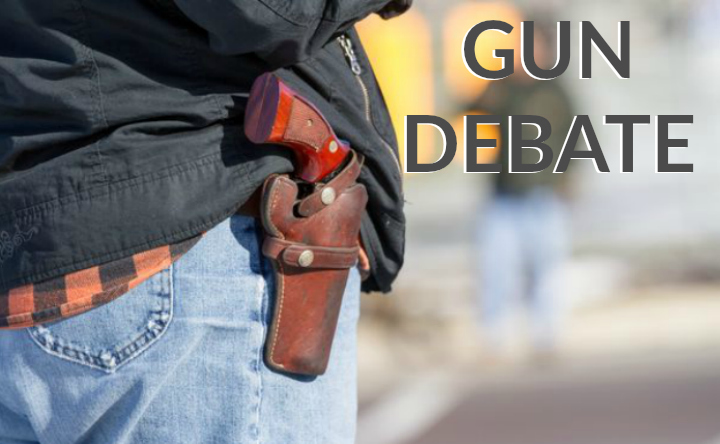by Kerby Anderson
After every shooting there is the inevitable gun debate. But this time there are indications that the gun debate may be changing. Here are a few examples.
First, there is growing evidence that law-abiding citizens have decided to ignore some of the gun laws. We all know that criminals buy guns on the black market and use them in the crimes they commit. And there are stories of people living in places like the District of Columbia who willingly violate the gun laws because they rightly assume that being fined for the possession of a firearm is worth the risk when you consider the likelihood of being attacked or killed.
Kevin Williamson cites some examples where law-abiding citizens decided to ignore the law. Connecticut passed a law requiring registration of certain firearms, but the citizens refused to comply. The city of Sunnyvale, California demanded that residents hand over all firearms capable of accepting magazines holding more than ten rounds. The citizens of Silicon Valley responded by turning in a grand total of zero firearms.
Second, some previous proponents of gun control are admitting they really didn’t understand the issue. One columnist admitted that she “wrongly equated semi-automatic weapons with automatic weapons.” She supported the assault gun ban because she “felt virtuous because at least I was supporting something.”
Third, others are criticizing attempts to pass laws prohibiting anyone on a no-fly list from purchasing a gun. This would not have stopped the shooters in San Bernardino, the Colorado Springs gunman, the Charleston church shooter, and many others. On the other hand, it would impact many people who have been on a no-fly list. Senator Ted Kennedy, Congressman John Lewis, journalist Stephen Hayes, and singer Cat Stevens have been on the no-fly list.
These are just a few indicators that the current gun debate might be different from the previous ones.
 Listen Online
Listen Online Watch Online
Watch Online Find a Station in Your Area
Find a Station in Your Area










 Listen Now
Listen Now Watch Online
Watch Online
